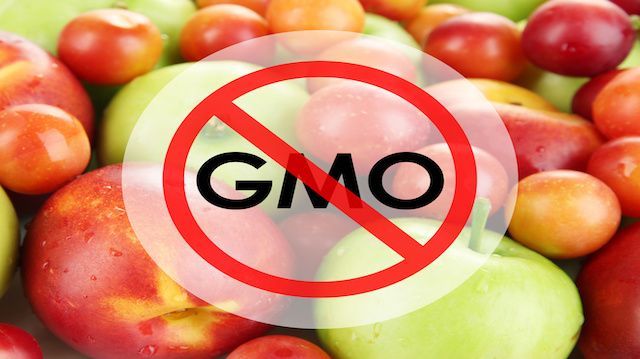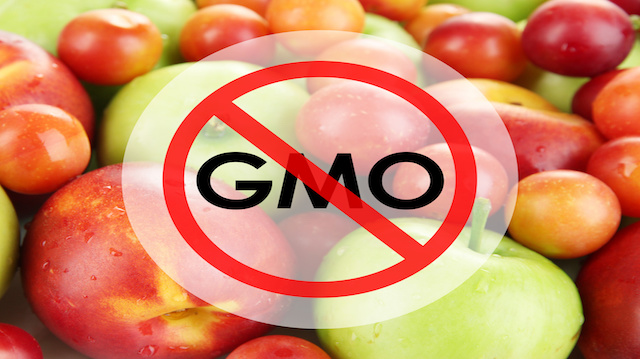
On December 10, 2015, the Yurok tribe enacted the Yurok Tribe Genetically Engineered Organism (GEO) Ordinance, aimed at maintaining and protecting the environment, agriculture, welfare and economy of the tribe from the contamination of genetically engineered organisms, according to the Northern California Tribal Court Coalition (NCTCC).
With more than 5,000 enrolled tribal members, the Yurok tribe is California’s largest Native American tribe, and it is taking a stand against GMO crops and genetically engineered salmon.
According to the NCTCC’s press release:
“The Tribal GEO Ordinance prohibits the propagation, raising, growing, spawning, incubating, or releasing genetically engineered organisms (such as growing GMO crops or releasing genetically engineered salmon) within the Tribe’s territory and declares the Yurok Reservation to be a GMO-free zone. While other Tribes, such as the Dine’ (Navajo) Nation, have declared GMO-free zones by resolution, this ordinance appears to be the first of its kind in the nation.”
The tribe’s GEO Ordinance was created in reaction to the U.S. Food and Drug Administration’s approval of the AquAdvantage genetically engineered salmon program in November of last year. The genetically engineered salmon raised by the AquAdvantage program grow to maturity in roughly half the time it takes non-GM salmon to grow.
A 40-mile stretch of the Klamath River has provided the Yurok people with sustenance for thousands of years, and they aim to keep it intact and free of “Frankenfish.” The Yurok Tribal Fisheries Program (YTFP) is “dedicated to understanding, managing, conserving, and restoring fish populations of the Klamath Basin for the benefit of present and future generations of Yurok People,” according to the tribe’s website.
The Yurok Tribal Council strives to protect not only its waterways and salmon, which are an integral part of the Yurok culture, but also its native lands from GMO crops.
“This Ordinance is a necessary step to protect our food sovereignty and to ensure the spiritual, cultural and physical health of the Yurok People,” James Dunlap, chairman of the Yurok tribe said in the NCTCC press release. “GMO food production systems, which are inherently dependent on the overuse of herbicides, pesticides and antibiotics, are not [in] our best interest.”
 When it comes to food safety, the topic of GMO crops and genetically engineered salmon may raise a few eyebrows. The dangers of using pesticides, herbicides, steroids, and antibiotics to produce GMO food have been widely discussed in recent years, and there is little denial of their harmful effects. One would think there would be just as many academic, peer-reviewed articles discussing the negatives of GMO food as there are highlighting the unhealthy aspects of cigarette smoking. However, this is unfortunately not the case.
When it comes to food safety, the topic of GMO crops and genetically engineered salmon may raise a few eyebrows. The dangers of using pesticides, herbicides, steroids, and antibiotics to produce GMO food have been widely discussed in recent years, and there is little denial of their harmful effects. One would think there would be just as many academic, peer-reviewed articles discussing the negatives of GMO food as there are highlighting the unhealthy aspects of cigarette smoking. However, this is unfortunately not the case.
While GMOs are still too new for a lot of long-term research to exist, it has also been widely speculated that Monsanto and other GMO companies have some scientists and scholars under the thumb. Even the World Health Organization (WHO) states on its website, “In the future, genetic modification could be aimed at altering the nutrient content of food, reducing its allergenic potential, or improving the efficiency of food production systems.”
The Yurok tribe is taking a historical stand against GMO crops and genetically engineered salmon to protect the future of its food supply. Will you join the Yurok people in the fight against GMOs?
—Stephen Seifert
Stephen Seifert is a writer, professor, adventurer and a health & fitness guru. His flair for travel and outdoor adventure allows him to enjoy culture and traditions different than his own. A healthy diet, routine fitness and constant mental development is the cornerstone to Stephen’s life.
Sources:
http://nctcc.org/SectionIndex.asp?SectionID=8
http://nctcc.org/Files/Yurok%20Tribe%20GEO%20Ordinance%20Signed.pdf
http://www.yuroktribe.org/departments/fisheries
http://www.yuroktribe.org/culture/culture3.htm
http://www.fda.gov/AnimalVeterinary/DevelopmentApprovalProcess/GeneticEngineering/GeneticallyEngineeredAnimals/ucm280853.htm
http://www.who.int/topics/food_genetically_modified/en

